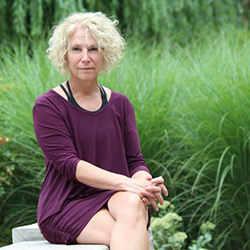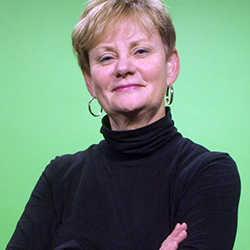FIMS News
Contact Information
FIMS Communications
Becky Blue
Email
519-661-2111x88493
FIMS & Nursing Building
Rm 2060C
Research duo recognized with multiple awards at AEJMC conference

Romayne Smith Fullerton, University of Western Ontario
The paper compares crime coverage across 10 Western democracies, examining the social, political and legal factors that shape individual practices. The same paper has also been named the winner of the Robert L. Stevenson Best Faculty Paper Award by the International Communications Division.
The AEJMC Research Prize for Professional Relevance was created to encourage ties between media professionals and media educators. Papers accepted for the AEJMC Conference were automatically eligible for consideration, and finalists were nominated by individual AEJMC divisions and interest groups as well as by conference paper reviewers. Then, a panel of communication scholars and representatives of seven leading professional media organizations chose the winning papers. They were looking to reward research that brings new insight, relevance, creativity and real-world applicability to the media industry.

Maggie Patterson, Duquesne University
“One of the biggest surprises conducting interviews about crime coverage was how little awareness journalists and editors have about how others cover crime—and there is a tremendous range. We have always wanted to share this knowledge amongst the scholarly and academic community, as well as with the public, so we can initiate a conversation about whether how we do it here in Canada is the ‘best’ way for us.”
A second research paper submitted by the duo, titled “Rights, Rites, and Rituals: An International Comparison of Crime Coverage Practices,” will receive the distinction of Best Faculty Paper for the Media Ethics Division at the conference.
Both winning papers are versions of book chapters written for a publication currently in production, tentatively titled, Murder in our Midst: Comparing Crime Coverage in a Globalized World. They represent part of a larger SSHRC-funded effort by the authors over the last several years to compare differing ethical decisions about crime coverage in select Western democracies. Both professors have published numerous papers on the subject and previously worked on the 2016 book, Covering Canadian Crime: What Journalists Should Know and the Public Should Question, with Smith Fullerton co-editing the book and both Smith Fullerton and Patterson contributing chapters.
Smith Fullerton expects that she will engage in further research on this topic in the future, but with the new book only just submitted to the publisher, she will need some time to see the project through and to plan her next move.
“I imagine that I’ll stay with crime coverage in some way, shape or form, but exactly what that research will look like is a bit unclear at present,” she said.
For now, she wants to focus on sharing the information she’s collected about the variety of crime coverage practices, and what they suggest about underlying cultural attitudes to concepts like public, private, public right to know, and justice.
“I hope people read the book once it’s published, and talk about our findings. I would love to have a chance to be a part of some of those discussions in the academy and beyond. I enjoy the practical aspects of research, and I may look to find opportunities that enhance my connections to the community.”
Both Smith Fullerton and Patterson will be on hand to receive their awards in person at the AEJMC conference in Toronto later this summer.


